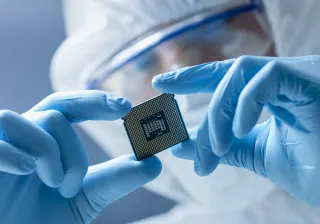There is a great need in society and in business to understand human behaviour and emotional experiences in public spaces, for example. A radar system developed at VTT identifies biosignals and micromovements in crowds of people and interprets prevailing emotional states. Based on this information it is possible to modify the environment, and in so doing, to improve the experience of using a space or service, as well as safety, workplace well-being, or productivity, for example.
A person's heartbeat and its variations, along with small movements give information on stress levels and emotional states, such as interest or nervousness. Monitoring these simultaneously in several people sharing the same space is a challenge. A camera can violate people's privacy and sensors that must be worn require active participation on the part of the user and compatibility of the different devices.
The new radar system solves these challenges. There is no physical contact with a person or any required action, nor does it produce an image from which the person might be identified. The system emerged from combining several of VTT's strengths – sensor and radar technology, artificial intelligence algorithms, and an understanding of human biosignals. The radar system has been tested under laboratory conditions.
“In a test situation we produced different emotional states in people by showing them videos and exposing them to stress by assigning them difficult tasks requiring mental calculation, for example. At the same time, we collected data using various sensors, cameras, and a radar system. The results are promising. Information gathered by the radar on the tests subjects’ heartbeats and movements corresponds to that from data derived from wearable sensors. We are able to observe variations in heartbeats in different emotional states, and when we get to optimise models for understanding emotional states, we are a step closer to having a functioning emotion radar”, says Johanna Närväinen, senior scientist at VTT.

Empathetic offices and emotionally based product development
The radar system has plenty of application potential. The innovation has raised interest in the development of workplace well-being, for example. In large office buildings the system could be utilised for identifying stress and frustration among personnel and altering working conditions to make it easier to cope. This could reduce work strain and absenteeism due to illness among personnel, while boosting well-being.
Manufacturers of consumer goods are interested in how people spontaneously react to products and advertising: information on emotions and attitudes can be utilised in marketing and in product development. In the car industry the radar system could help monitor a driver's emotional state and level of alertness, for example. Other potential application areas include health care, education, and robots that interact with people.
Radical solutions sought in the iBEX programme
The emotion radar has been developed as part of VTT's iBEX 2020 programme. The programme is an example of a new way to do applied research in a more solution-oriented manner. The project takes on big global challenges, while searching for radical solutions together with industry and the surrounding society. The iBEX programme is a runway for inventions that change the world.








